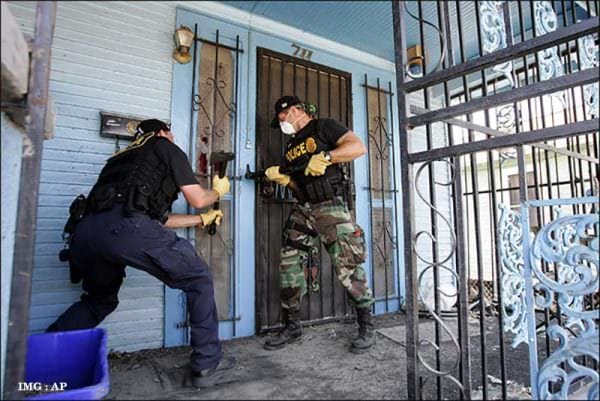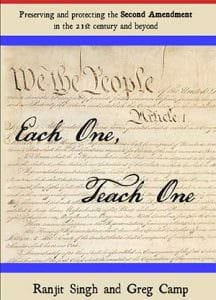Fayetteville, AR –-(Ammoland.com)- David Scharfenberg, an ideas writer for the Boston Globe, has come out in the open to declare what so many advocates of gun control claim that they don’t want: confiscation. In an article, titled, “Hand over your weapons,” he chides Hillary Clinton for leaving out the mandatory aspect of the “buyback” of some 650,000 firearms in Australia and admits that Obama’s praise for that program was code for his support of using the force of law to take guns away from their legal owners. In his view, the number of guns in private hands is the problem and reducing that number is the solution.
I’m told time and time again that no one is coming for my guns. While it’s refreshing to have some honesty from someone who would like to curtail the rights of their fellow citizens, this doesn’t make me more likely to agree to his proposal. And his arguments in favor don’t either.
Scharfenberg cites former Australian prime minister, John Howard, as someone who had the “political courage” to take guns away from the supporters of his coalition. Howard boasted in The New York Times several years ago that “Australia, correctly in my view, does not have a Bill of Rights, so our legislatures have more say than America’s over many issues of individual rights, and our courts have less control. Also, we have no constitutional right to bear arms.” Apparently, Australian gun banners have had an attack of honesty for a while now. I’ve rarely seen a clearer statement against rights. Or a clearer reason to be glad that in this country we decided to protect rights.
It’s true to say that there have been no mass shootings in Australia since the 1997 laws were enacted. Is that supposed to be a comfort to the people who were murdered in mass arson attacks? However, to someone who cares about how many lives are taken in a given year, the bans and controls did not offer any improvement. The homicide rate in Australia was basically constant over the twentieth century, rising with the rest of the world in the 60s and then starting a decline in the mid 80s. That decline leveled out in the early 2000s, and while gun homicides did fall, murderers switched to knives. But, in the view of gun control advocates, at least people aren’t being shot as often, so that’s good.
Another thing that I rarely see in arguments in favor of gun confiscation is an acknowledgment of how hard such a program would be to carry out. But once again, Scharfenberg is telling the truth. “Part of the problem is the sheer scale of the enterprise. An operation on par with the Australian buyback—claiming one-fifth of American guns—would mean tens of thousands of police officers collecting some 60 million guns. It is, on some level, simply unimaginable.”

The idea of sending law-enforcement officers out looking for guns that are not registered and in many cases have changed hands since their original sale is daunting indeed, and his courage fails him. Instead, after saying that confiscation is necessary, he comes up with a first step that he hopes will be easier: taking guns away from people are accused by their friends and relations of being unstable.

In other words, if you’re going after rights, might as well attack a bunch of them, due process especially. But in America, the Second Amendment isn’t the only protection of rights. Scharfenberg should read more of the Bill of Rights—though he hasn’t had a great deal of reading comprehension success so far. That document gets in the way of people like him, just as the founders of our country intended.
About Greg Camp
Greg Camp has taught English composition and literature since 1998 and is the author of six books, including a western, The Willing Spirit, and Each One, Teach One, with Ranjit Singh on gun politics in America. His books can are found on Amazon. He tweets @gregcampnc.
